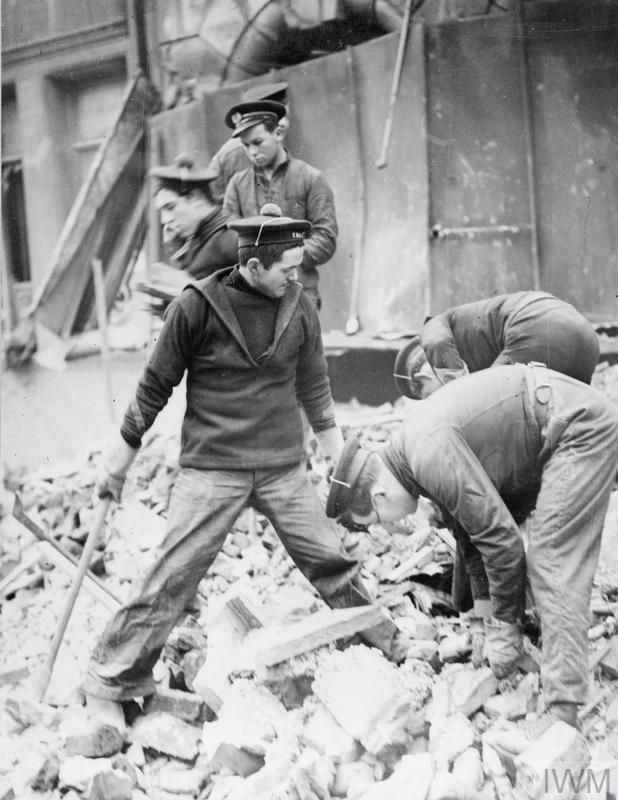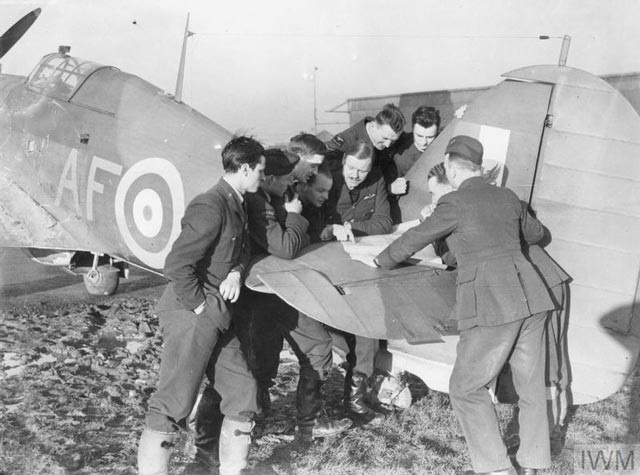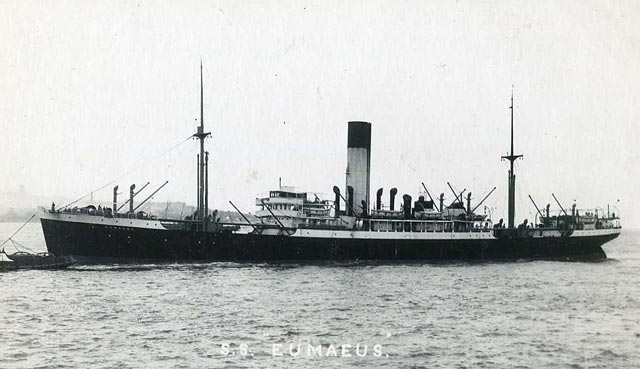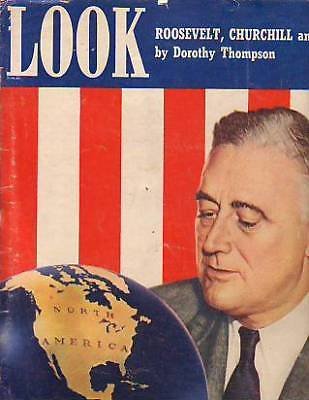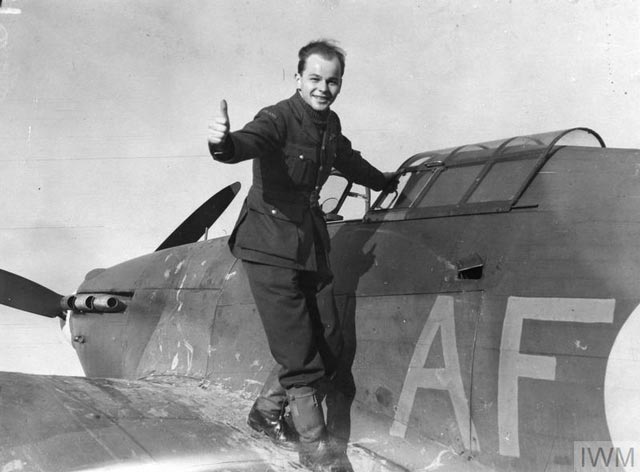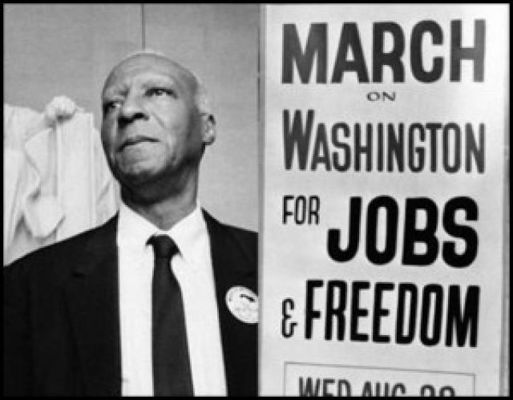Thursday 12 March 1942
 |
| "Three Westland Lysander Mark IIIAs of No. 309 Polish Fighter-Reconnaissance Squadron (part of the RAF Army Cooperation Command), based at Dunino, Fife, taking part in a low-level bombing exercise on a range in Scotland." 12 March 1942. © IWM (H 17776). |
In Sumatra, the Japanese advance inland and take the airfield at Medan. The Imperial Guard Division is ordered to complete mopping-up operations on the island.
In Burma, the fighting is nearing an end. The badly mauled 17th Indian Division receives orders to evacuate to India. The British and Gurkha garrison of the Andaman Islands in the Bay of Bengal evacuates to India, depriving the Allies of the seaplane base there. The Burma Army establishes its headquarters at the resort town of Maymyo (Pyin Ol Lwin), which has a large European population. The Japanese eventually incarcerate many of them due to suspected sympathies for the Allies.
 |
| Captain America Comics No.12 - March 1942, featuring The Weird Case of the Pygmies of Terror. |
General Douglas MacArthur and his party are en route from Luzon to Tagauayan Island in the Cuyo Group aboard fast motor torpedo (PT) boats. During the night, the four PT boats become separated and two of the boats develop mechanical issues. MacArthur's PT boat, however, proceeds without issue, and all four boats eventually arrive safely.
The British know that the next area of naval warfare is likely to be the Indian Ocean. Accordingly, aircraft carrier Formidable and destroyers Paladin and Panther depart today from Capetown bound for Colombo.
 |
| US freighter Olga, sunk near Cuba on 12 March 1942. |
The Soviets under General Kozlov on the Crimea are preparing for another attempt to break through the German lines to relieve Sevastopol. Kozlov is under strict orders by Stalin issued on 3 March to resume the offensive within ten days. The Germans have laid down 2000 Teller mines in front of the key defensive area and concentrated their assault guns in a defensive posture. Due to the usual spring thawing (Rasputitsa), the ground is muddy and not suitable for an attack, but Kozlov has his orders. The attack will begin as ordered at 09:00 on 13 March 1942.
 |
| "Ground crew removes a Type F.24 camera from Westland Lysander Mark IIIA, V9437 'AR-V', of No. 309 Polish Fighter-Reconnaissance Squadron (part of the RAF Army Cooperation Command), at Dunino, Fife, following a photo-reconnaissance sortie." 12 March 1942. © IWM (H 17778). |
 |
| Norwegian freighter Ingerto, sunk with no survivors on 12 March 1942. |
7005-ton US freighter Texan (ten dead, 37 survivors)Both ships are unarmed. The survivors of the Olga are all taken to Guantanamo Bay. The suction from the Texan causes its lifeboats to capsize and leads to many men drowning.
2496-ton US freighter Olga (one dead, 32 survivors)
U-578 (KrvKpt. Ernst-August Rehwinkel), on its third patrol out of St. Nazaire, torpedoes and sinks 3089-ton Norwegian freighter Ingerto about 370 miles southeast of Cape Race. The ship is a straggler of Convoy ON-70. Ingerto sinks quickly and takes all 32 men on board with her.
British 2291-ton passenger ship St. Briac hits a mine and sinks off Aberdeen. There are about 45 deaths of the 123 men on board. Many of the men aboard the St. Briac are Royal Naval sailors because it is classified as an air target vessel.
Two Royal Navy armed trawlers, HMS Wastwater (FY 239) and Le Tigre (Fy 243) begin patrols off the coast of New Jersey in the Third Naval District area.
 |
| "A sailor onboard HMS ALCANTARA uses a portable sewing machine to repair a signal flag during a voyage to Sierra Leone." March 1942. © IWM (CBM 1049). |
In Malta, the RAF has lost many planes on the ground in recent days from Luftwaffe bombing. Infantry battalions now are being used to build blast walls to shield parked planes from the explosions. The Luftwaffe and Regia Aeronautica continue their attacks today, dropping bombs on the Ta Qali airfield area and near St. Andrews, Kalafrana, Safi, and near St. Agata Church. These attacks slightly damage seven Hurricane fighters at Ta Qali. A bomb hits a shelter there, killing one soldier (eventually) and wounding several others.
Japanese/Australian Relations: Japanese Prime Minister General Tojo Hideki issues a surrender demand to Australia that is ignored.
 |
| "Three Westland Lysander Mark IIIAs of No. 309 Polish Fighter-Reconnaissance Squadron RAF (part of the RAF Army Cooperation Command), based at Dunino, Fife, on a photographic-reconnaissance training sortie over snow-covered Scottish hills." 12 March 1942. © IWM (H 17770). |
Three transport ships carrying USAAF ground personnel arrive at Karachi from Australia. Many of the men no longer have aircraft to service, however, due to their loss in the sinking of USS Langley on 27 February 1942.
US Army troops under Brigadier General Alexander M. Patch land on New Caledonia Island to establish a base at Noumea. This is Task Force 6814 consisting of 17,500 men. New Caledonia is of uncertain loyalty to the Allied cause due to the strong Vichy French presence on the island.
 |
| British mothers at a Tottenham Welfare Center celebrate the arrival of scarce American lend-lease products such as orange juice and cod liver oil. 12 March 1942 (© Daily Herald Archive / National Science & Media Museum / Science & Society Picture Library 10313768). |
American Homefront: The Esposito brothers, Anthony and Esposito, are executed in the electric chair in Sing Sing prison. They were convicted of the "thrill kill" murders of a police officer and a holdup victim on 14 January 1941. While their defense of insanity failed, it did accelerate a long history of such defenses in the court system.
Bing Crosby appears on the Kraft Music Hall and sings ten songs. These are later released as an album, including patriotic song "We're the Gang that Feeds the Army."
In Omaha, Nebraska, 11-year-old Warren Buffett buys his first shares of stock (Buffett himself gives the date as 12 March 1942, though other sources say it is 11 March 1942). They are three shares of Cities Service preferred stock. Being underage, he must use his father's brokerage account. The purchase consumes all of the money Buffett has saved since age 6. "I went all in," Buffett reminisced in February 2019. "I had become a capitalist, and it felt good."
Future History: James Sherman Wynn is born in Hamilton, Ohio. He earns the nickname "The Toy Cannon" while playing for several Major League Baseball teams primarily as a center fielder in the 1960s and 1970s. He winds up his career with the Milwaukee Brewers in 1977.
March 1942
March 1, 1942: Second Battle of Java Sea
March 2, 1942: Huge Allied Shipping Losses at Java
March 3, 1942: Japan Raids Western Australia
March 4, 1942: Second Raid On Hawaii
March 5, 1942: Japan Takes Batavia
March 6, 1942: Churchill Assaults Free Speech
March 7, 1942: British Defeat in Burma
March 8, 1942: Rangoon Falls to Japan
March 9, 1942: Japanese Conquest of Dutch East Indies
March 10, 1942:US Navy attacks Japanese Landings at Lae
March 11, 1942: Warren Buffett's First Stock Trade
March 12, 1942: Japan Takes Java
March 13, 1942: Soviets Attack In Crimea Again
March 14, 1942: The US Leans Toward Europe
March 15, 1942: Operation Raubtier Begins
March 16, 1942: General MacArthur Gets His Ride
March 17, 1942: MacArthur Arrives in Australia
March 18, 1942: Japan Attacks In Burma
March 19, 1942: Soviets Encircled on the Volkhov
March 20, 1942: "I Shall Return," Says MacArthur
March 21, 1942: Germans Attack Toward Demyansk
March 22, 1942: Second Battle of Sirte
March 23, 1942: Hitler's Insecurity Builds
March 24, 1942: Bataan Bombarded
March 25, 1942: Chinese Under Pressure in Burma
March 26, 1942: Win Or Die, Vows MacArthur
March 27, 1942: The Battle of Suusari
March 28, 1942: The St. Nazaire Commando Raid
March 29, 1942: The Free Republic of Nias
March 30, 1942: Japanese-Americans Off Bainbridge Island
March 31, 1942: Japanese Seize Christmas Island
2020

